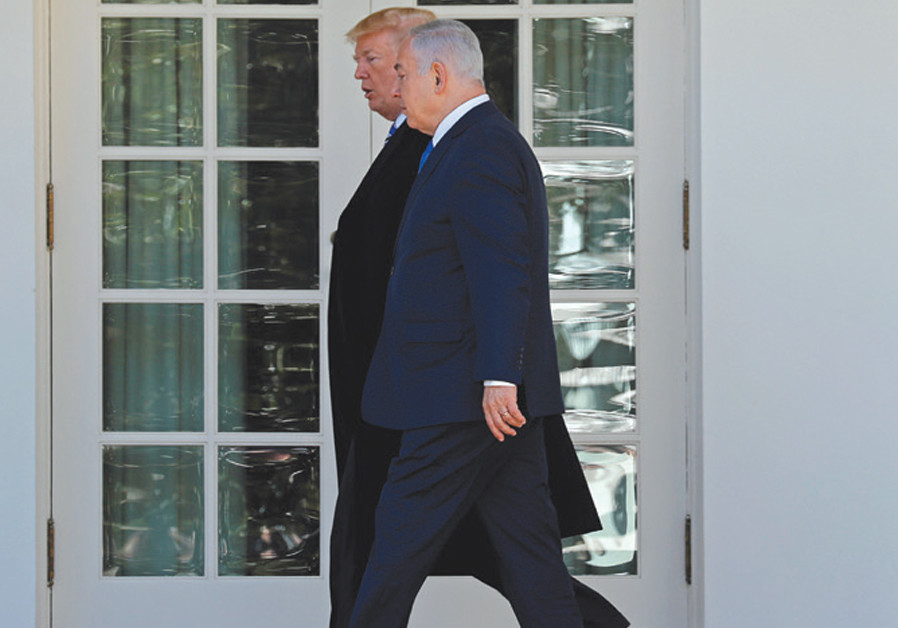Netanyahu does not have a deputy or a vice prime minister. Perhaps the closest he has to that is the minister who was sent by Netanyahu to Ben-Gurion Airport to greet US Vice President Mike Pence.

When Ariel Sharon was prime minister, an interesting person to interview was his vice prime minister, Ehud Olmert, who often was sent to float trial balloons by Sharon and his staff.
If an initiative was received well, there were times the prime minister would pursue it and adopt it as his own. If it was a flop, then it was dismissed as coming from Olmert.
When Olmert took over as prime minister, his finance minister, Ronnie Bar-On, succeeded Olmert as the floater.
With Prime Minister Benjamin Netanyahu, it is harder to indicate when trial balloons are floated on his behalf. For instance, when Culture and Sports Minister Miri Regev attacked former ID chief Benny Gantz two weeks ago, she was asked repeatedly whether she had done so on Netanyahu’s behalf.
Netanyahu does not have a deputy or a vice prime minister. Perhaps the closest he has to that is the minister who was sent by Netanyahu to Ben-Gurion Airport to greet US Vice President Mike Pence, who by protocol must be received by his counterpart: Ministerial Liaison to the Knesset Yariv Levin.
That is why it has been interesting to listen closely in recent days to Levin speaking about the haredi (ultra-Orthodox) enlistment bill.
The bill technically must be passed by Sunday or the government will be in violation of a Supreme Court-mandated deadline. Netanyahu’s government has asked for an extension and is waiting for the answer of the court, which Attorney-General Avichai Mandelblit told ministers will be a no.
“If they continue pressuring us on the draft bill, the government will fall,” Levin said this week. “It would be wrong of the Supreme Court to keep intervening on such a sensitive issue that requires a consensus. They would really bring about the toppling of the government. I hope they don’t.”
Levin’s spokeswoman said he was just giving his own opinion about the court overextending its power, which he delivers regularly but is only more newsworthy now. But she said Netanyahu undoubtedly agrees with Levin.
Assuming she is right, Netanyahu could have found a balloon that will float very well with his base on the Right that does not like elitists, including the Supreme Court.
Netanyahu has been looking for a fall guy for initiating early elections. When he tried to pin it on Bayit Yehudi leader Naftali Bennett, Bennett backed off. Kulanu leader Moshe Kahlon has backtracked as well.
The Supreme Court could easily fall into that trap. Netanyahu can blame them for elections he would initiate, and in an election in which it is unclear who his major opponent will be, he can run against the legal system.
That legal system is pursuing cases against him that he – and many of his voters – regard as frivolous. He would be able to say that the same legal system that cares so much about his cigars and his wife’s take-out food forced Israel into an unnecessary early election.
If that succeeds for Netanyahu, don’t be surprised if it then gets tried by US President Donald Trump, who could run against the legal system in his country that he can say is trying to bring him down. It would not be the first time Trump adopts political ideas he learned from Netanyahu.
It would not be on purpose, but Netanyahu could end up being the floater for the president of the United States.
As reported by The Jerusalem Post
